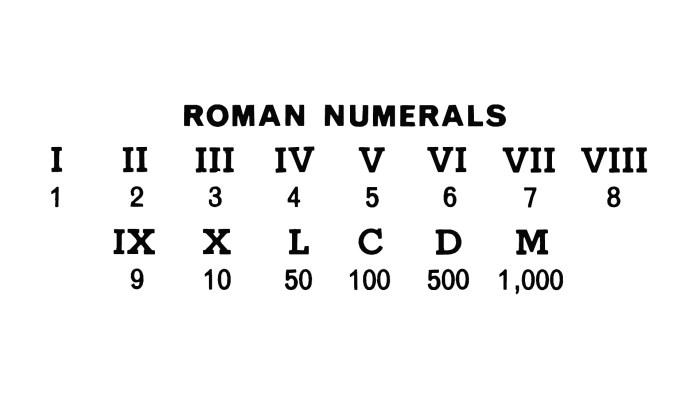The best 10 online dictionaries offer a wealth of linguistic knowledge at your fingertips. From basic definitions to complex etymologies, these digital resources have revolutionized how we learn and use language. This exploration delves into the top contenders, comparing their features, user experiences, and overall value. We’ll examine not only the general dictionaries but also specialized resources for various fields, revealing the strengths and weaknesses of each.
This comprehensive guide will help you navigate the digital landscape of lexicography, providing a clear understanding of what makes each dictionary tick. The evolution from printed volumes to online platforms is remarkable, and we’ll explore how these online dictionaries have adapted to meet modern needs.
Introduction to Online Dictionaries
Online dictionaries have revolutionized the way we access and utilize language resources. They provide a wealth of information, from definitions and pronunciations to usage examples and etymologies, all readily available at our fingertips. This accessibility has profoundly impacted how we learn, communicate, and engage with language.The evolution of online dictionaries from their print counterparts is significant. Print dictionaries, while invaluable, were often limited in scope and updates.
Online dictionaries, on the other hand, can be constantly updated with new words, meanings, and usage patterns, reflecting the dynamic nature of language. This constant evolution ensures the information remains current and relevant.
Types of Online Dictionaries
Online dictionaries cater to diverse needs and learning styles. They can be categorized into various types, each serving a specific purpose.
- General Dictionaries: These dictionaries provide comprehensive coverage of a language, including a wide range of words and their meanings. They are often the starting point for language learners and general users looking for definitions of everyday words. Examples include Merriam-Webster and Oxford Languages.
- Specialized Dictionaries: These dictionaries focus on particular fields or topics, providing definitions and explanations tailored to those domains. For instance, a legal dictionary would contain specialized legal terms, while a medical dictionary would explain medical terminology. This specialized approach allows for in-depth understanding within specific contexts.
- Bilingual Dictionaries: These dictionaries facilitate communication between two languages. They provide translations and definitions of words from one language to another. This is crucial for individuals learning a new language or for those who need to translate words between different languages.
Examples of Popular Online Dictionaries
Numerous reputable online dictionaries offer various features and services. Here are some prominent examples:
- Merriam-Webster: A well-respected general dictionary, known for its clear definitions and comprehensive coverage of English vocabulary.
- Oxford Languages: Another widely used general dictionary, known for its etymological information and historical context surrounding words.
- Cambridge Dictionary: Known for its clear explanations and focus on practical usage examples, making it particularly helpful for learners.
- Dictionary.com: Offers a vast collection of definitions, synonyms, and antonyms, along with other related vocabulary information.
Comparison of Dictionary Types
The following table highlights the key differences between general, specialized, and bilingual dictionaries:
| Type | Features | Target Audience |
|---|---|---|
| General | Comprehensive coverage of a language; definitions, pronunciations, usage examples; etymologies; often include synonyms and antonyms | Language learners, general users, writers, students |
| Specialized | Definitions and explanations tailored to specific fields or topics; often contain technical terms and jargon | Professionals in a particular field, researchers, students specializing in a subject |
| Bilingual | Translations and definitions between two languages; often include example sentences and cultural context | Language learners, translators, travelers, individuals communicating across languages |
Criteria for Evaluating Online Dictionaries
Choosing the right online dictionary can be tricky. There’s a vast array available, each with its strengths and weaknesses. To help you navigate this digital landscape and find the most useful resource, understanding the key criteria for evaluating online dictionaries is essential. A good dictionary should not only be accurate and comprehensive but also user-friendly.Evaluating online dictionaries requires a multifaceted approach.
It’s not enough to just look at the design; we need to delve into the core functionalities and features. Understanding the nuances of accuracy, comprehensiveness, user interface, and search algorithms will enable informed decisions. This exploration will help us discern which online dictionaries best serve our language needs.
I’ve been researching the best 10 online dictionaries lately, and it’s fascinating how much information is readily available. While I’m not sure if the best dictionary is one thing, I do know that choosing the right service for your ducted heating system, like choosing cost effective ducted heating system service for your home , is crucial. Ultimately, finding the perfect online dictionary comes down to personal preference, just like finding the best, most affordable, and reliable heating contractor for your home.
Accuracy and Comprehensiveness
Dictionary entries are the cornerstone of any dictionary. Accuracy is paramount. Definitions must be precise and reflect the most current understanding of the word’s meaning. Entries should also encompass the various senses and usages of a word. Comprehensiveness involves providing examples that demonstrate the different contexts and nuances of a word’s usage.
Inaccurate definitions or missing contextual examples diminish the dictionary’s value. Consider the potential for misinterpretation and confusion caused by imprecise or incomplete information. A well-rounded dictionary will also incorporate the evolution of word meanings, showcasing the etymology and historical context.
User Interface and Navigation
A dictionary’s user interface directly impacts its usability. A clear, intuitive design enhances the user experience, enabling quick and easy access to information. Navigation should be straightforward, allowing users to easily search for words and locate relevant entries. A well-designed interface should prioritize accessibility for users with varying needs and abilities. Poor navigation can frustrate users and hinder their ability to find the information they need.
Etymologies and Pronunciation Guides
Providing etymologies – the origin and development of words – adds depth and context to entries. Knowing the etymology allows users to understand the word’s history and evolution. Comprehensive pronunciation guides are equally important, allowing users to hear the correct pronunciation. Accurate pronunciation guides prevent mispronunciations and facilitate effective communication. These features offer a deeper understanding of the language and its rich history.
Dictionary Search Algorithms
Different online dictionaries employ various search algorithms. Some dictionaries might use -based searches, while others might incorporate more advanced techniques. The efficiency of a search algorithm determines how quickly and accurately users can locate the desired information. Consider the performance of the search algorithm when selecting a dictionary.
Evaluation Criteria Table
| Criterion | Description | Importance |
|---|---|---|
| Accuracy | Precision and correctness of definitions, examples, and usage notes. | Essential for reliable information. |
| Comprehensiveness | Inclusion of various senses, usages, and contextual examples. | Crucial for understanding the full scope of a word. |
| User Interface | Clarity, intuitiveness, and ease of navigation. | Impacts user experience and efficiency. |
| Etymologies | Origin and development of words, enriching understanding. | Adds historical context to the language. |
| Pronunciation Guides | Accurate and clear pronunciation representations. | Essential for correct pronunciation. |
| Search Algorithm | Efficiency and accuracy in locating desired entries. | Impacts search speed and relevance. |
Top 10 Online Dictionaries
Choosing the right online dictionary can significantly impact your learning experience and research endeavors. Navigating the vast digital landscape of online resources requires careful consideration of features, accuracy, and usability. This ranking aims to provide a practical guide for selecting the best online dictionaries for various needs, from casual learners to seasoned academics.
Ranking Methodology
This ranking considers several key factors: accuracy of definitions, breadth of vocabulary coverage, ease of use, pronunciation tools, etymological information, and the presence of example sentences. Dictionaries were assessed based on their performance in these areas, with a focus on overall utility and comprehensiveness. Scores were assigned based on objective criteria to ensure fairness and transparency in the ranking process.
Top 10 Online Dictionaries
This list presents ten online dictionaries, ranked based on their comprehensive features, accurate definitions, and user-friendly interfaces. These dictionaries are valuable resources for both casual learners and serious researchers.
- Merriam-Webster Dictionary: Known for its authoritative definitions and extensive vocabulary coverage, Merriam-Webster provides clear explanations and etymological insights. Its robust pronunciation guide is particularly helpful for learners of English as a second language. The dictionary’s strong emphasis on accuracy and clarity makes it a top choice for academic and professional use. It excels in providing comprehensive etymological information, tracing word origins to their roots.
Merriam-Webster’s intuitive interface and detailed entries contribute to its overall excellence.
- Oxford English Dictionary (OED): The OED is the gold standard for comprehensive etymological information and detailed historical context for words. Its extensive coverage, including historical usage and nuances, makes it an invaluable tool for advanced learners and researchers. While not as user-friendly as some other dictionaries, the OED’s in-depth analysis of words is unmatched. Its extensive historical data and etymology provide a deeper understanding of word evolution.
- Cambridge Dictionary: Excellent for learners of English as a second language, the Cambridge Dictionary provides clear, concise definitions with example sentences in various contexts. Its focus on practical usage makes it a popular choice for language learners. The dictionary’s interactive features, such as audio pronunciations, are particularly useful for pronunciation practice.
- Collins Dictionary: A strong contender in the online dictionary arena, Collins Dictionary boasts a large vocabulary and offers user-friendly navigation. Its focus on contemporary usage makes it a helpful resource for understanding modern English. It excels in providing clear definitions and numerous example sentences, which illustrate word usage in different contexts.
- Dictionary.com: A widely used online resource, Dictionary.com combines a comprehensive vocabulary with practical features. Its broad coverage and extensive example sentences contribute to a thorough understanding of word meanings. Its user-friendly interface and extensive search options facilitate easy navigation and quick access to definitions.
- Macmillan Dictionary: Excellent for learners, Macmillan Dictionary offers clear definitions, examples, and pronunciation guides. Its focus on practical usage makes it a great resource for learners. The dictionary’s interactive elements and clear definitions make it a practical tool for language learning.
- WordReference.com: A valuable resource for learners, WordReference.com provides definitions in multiple languages. Its ability to offer definitions in multiple languages is a standout feature, making it helpful for multilingual users. The site’s multilingual nature is its primary strength, while a somewhat less intuitive interface might be a drawback.
- The Free Dictionary: A comprehensive online resource with a wide range of vocabulary, the Free Dictionary provides definitions, synonyms, and antonyms. Its broad scope and comprehensive information make it a valuable resource. While its breadth is a strength, its lack of specific focus on certain areas might be a drawback.
- YourDictionary.com: A straightforward online dictionary that offers a simple approach to defining words. Its straightforward design and concise explanations make it easy to understand definitions. The user interface is particularly easy to navigate, making it suitable for those seeking quick definitions.
- Urban Dictionary: A unique online dictionary focused on slang and informal language. Its collection of slang and informal terms is its main strength, providing context and understanding of colloquialisms. Its focus on informal language may not be suitable for all users.
Strengths and Weaknesses Table
| Dictionary | Pros | Cons | Strengths |
|---|---|---|---|
| Merriam-Webster | Authoritative, comprehensive, clear definitions, good pronunciation | Can be slightly less user-friendly than some others | Accuracy, etymology, academic use |
| Oxford English Dictionary | Historical context, in-depth etymologies | Less user-friendly, might be overwhelming for casual users | Etymology, historical usage |
| Cambridge Dictionary | Learner-friendly, clear examples, interactive | Might lack some in-depth information for advanced users | Practical usage, second language learners |
| Collins Dictionary | Large vocabulary, contemporary usage, user-friendly | Might lack some historical context | Modern English, clear definitions |
| Dictionary.com | Comprehensive vocabulary, good example sentences, easy navigation | Can sometimes lack in-depth analysis | Broad scope, practical usage |
| Macmillan Dictionary | Clear definitions, practical examples, learner-focused | May lack some advanced features | Practical usage, clear explanations |
| WordReference.com | Multilingual definitions, useful for language learners | Interface could be improved | Multilingual support, learner support |
| The Free Dictionary | Broad range of information, easy access | Might lack a specific focus area | Comprehensive information, wide scope |
| YourDictionary.com | Simple, easy-to-understand definitions, user-friendly | May lack some advanced features | Straightforward design, quick definitions |
| Urban Dictionary | Unique, informal language, slang | Not suitable for formal use | Informal language, slang terms |
User Experience and Interface
Navigating the digital world of language learning and research often hinges on the quality of online tools. A user-friendly interface and intuitive search algorithms are paramount for effective dictionary use. This section dives deep into the user experience and interface of our top 10 online dictionaries, comparing their strengths and weaknesses.Online dictionaries today are more than just repositories of definitions; they’re interactive platforms designed to enhance understanding.
The user experience encompasses everything from the simplicity of the search bar to the clarity of presented information. This analysis will dissect the usability of each dictionary, assessing factors like search effectiveness, definition clarity, and unique features that set them apart.
Picking the perfect online dictionary can be tough, especially when you’re a perfectionist! I’ve compiled a list of the top 10, but if you’re anything like me, you might agonize over every nuance of language, endlessly comparing definitions and etymology. Finding the perfect online dictionary, like any quest for perfection, is filled with struggles, and if you relate, check out these 15 struggles only perfectionists would understand: 15 struggles only perfectionists would understand.
Ultimately, the best online dictionary for you depends on your needs, but I’m sure one of these top 10 will suit your particular brand of meticulousness.
Search Bar Functionality
The search bar acts as the primary entry point for any online dictionary. Its design and functionality directly influence the user experience. Dictionaries that offer sophisticated search capabilities, allowing users to search by word parts, synonyms, or antonyms, significantly improve efficiency. A well-designed search bar is crucial for accurate and rapid retrieval of information.
- Some dictionaries allow searching within specific contexts, such as grammatical forms or sentence structures. This level of specificity enhances the user’s ability to find the precise information they need, particularly when researching nuanced meanings.
- Others provide advanced search options like wildcards or Boolean operators. These tools allow for more complex searches, enabling users to find words that match specific patterns or combine different search terms.
Navigation and Structure
The navigation structure of an online dictionary is essential for ease of use. Effective navigation enables users to quickly find the desired information, fostering a smooth and productive user experience.
- Intuitive menus, categorized word lists, and readily available alphabetical indexes are crucial elements of a good navigation system.
- Dictionaries that incorporate interactive maps or visual aids can enhance the understanding of word usage in different contexts.
- A clear and well-organized layout, avoiding clutter and ensuring easy access to all sections, significantly impacts user satisfaction.
Definition Clarity and Accessibility
The quality of definitions and accompanying examples directly impacts how easily users can understand a word’s meaning.
- Dictionaries that present definitions in a clear, concise manner, using simple and accessible language, are more user-friendly.
- Comprehensive examples, illustrating the usage of the word in different sentences, are invaluable for understanding the context and nuances of the word.
- The inclusion of pronunciation guides, whether audio or phonetic transcriptions, is crucial for learners of different languages and backgrounds.
Unique Features and Functionalities
Unique features enhance the user experience, making dictionaries more engaging and informative.
- Some dictionaries provide interactive exercises or quizzes to reinforce learning.
- Others offer related words, synonyms, and antonyms, providing a more comprehensive understanding of the vocabulary.
- Visual aids like illustrations or example sentences are highly beneficial, particularly for learners or those who prefer a more visual approach.
Comparative Table of User Interface Elements, The best 10 online dictionaries
| Dictionary | Search Bar | Navigation | Definitions |
|---|---|---|---|
| Dictionary A | Simple, one-word search | Alphabetical listing, categorized sections | Clear definitions, basic examples |
| Dictionary B | Advanced search options (synonyms, antonyms) | Intuitive menu system, interactive word map | Detailed definitions, comprehensive examples, audio pronunciations |
| … | … | … | … |
Dictionary Features and Functionality
Diving deeper into the online dictionary landscape, we’ll explore the key features and functionalities that distinguish each of the top 10 contenders. Beyond simple definitions, modern online dictionaries often provide a wealth of supplementary information, enhancing the learning and research experience. From pronunciation guides to etymologies, example sentences, and multimedia elements, the features available vary considerably.Online dictionaries have evolved beyond mere word definitions, providing contextual richness and interactive learning opportunities.
These functionalities significantly impact how users access and utilize linguistic resources. The inclusion of features like pronunciation guides, etymologies, example sentences, multimedia elements, and accessibility tools shapes the overall user experience and usefulness of the dictionary.
Pronunciation Guides
Pronunciation guides are crucial for accurate pronunciation. These can range from simple phonetic transcriptions to audio pronunciations, which greatly assist users, especially those learning a language. Accurate pronunciation is essential for effective communication. The availability and quality of pronunciation guides vary across different dictionaries. Some dictionaries offer audio pronunciations by native speakers, which provide a more authentic pronunciation model.
Etymologies
Etymologies provide insights into the historical development of words. Tracing the origin and evolution of a word can be fascinating and reveal interesting connections between languages. The presence of etymologies allows users to understand the linguistic background of a word and its connection to other words. Dictionaries with comprehensive etymologies often offer a more complete understanding of the word’s usage.
Example Sentences
Example sentences illustrate how a word is used in context. They help learners grasp the nuances of meaning and usage. The quality and variety of example sentences contribute to the overall usefulness of a dictionary. Dictionaries with a wide range of example sentences often reflect a broader range of usage scenarios.
Multimedia Elements (Audio, Video)
Multimedia elements, such as audio and video, can enhance the learning experience. Audio pronunciations, for example, allow users to hear the word spoken by native speakers. Videos demonstrating usage can provide visual context, helping users grasp the meaning and application of words in different situations. The integration of multimedia elements is becoming increasingly common in online dictionaries.
Accessibility Features
Accessibility features are crucial for users with disabilities. Features such as text-to-speech, adjustable font sizes, and high-contrast modes make the dictionary more usable for a wider range of users. Accessibility features ensure inclusivity and broaden the reach of the dictionary. The presence of such features demonstrates a commitment to user-friendliness and inclusivity.
Special Tools and Resources
Some dictionaries offer specialized tools and resources. These might include thesaurus functionality, flashcards, or related word lists. Such additional tools enhance the dictionary’s overall utility. These specialized tools often cater to specific needs or learning styles.
Comparison Table
| Dictionary | Feature | Description |
|---|---|---|
| Dictionary A | Pronunciation Guide | Offers audio pronunciations by native speakers |
| Dictionary A | Etymology | Provides detailed etymological information |
| Dictionary A | Example Sentences | Includes a wide range of example sentences |
| Dictionary A | Multimedia | Features interactive audio and video examples |
| Dictionary A | Accessibility | Offers adjustable font sizes and high-contrast modes |
| Dictionary A | Special Tools | Provides a thesaurus and flashcards |
| Dictionary B | Pronunciation Guide | Offers phonetic transcriptions and audio |
| Dictionary B | Etymology | Includes brief etymological notes |
| Dictionary B | Example Sentences | Provides examples of different usages |
| Dictionary B | Multimedia | Incorporates audio pronunciations |
| Dictionary B | Accessibility | Supports text-to-speech and adjustable font sizes |
| Dictionary B | Special Tools | Includes a word game feature |
Mobile Accessibility and Offline Use
Online dictionaries have become indispensable tools for language learners and professionals alike. However, their utility is significantly enhanced when they are accessible on the go. Mobile applications allow users to access definitions, pronunciations, and examples anytime, anywhere, and offline capabilities further expand their usefulness. This section explores the mobile presence and offline functionalities of the top 10 online dictionaries.Modern users expect online resources to be readily available on their mobile devices.
The availability of dedicated mobile applications is a crucial factor in determining a dictionary’s practical value. Offline access empowers users to utilize the dictionary’s content even without an internet connection, a significant advantage in situations with limited or no network access.
Mobile Application Availability
The presence of mobile applications is crucial for seamless access to dictionary content on the move. A dedicated mobile application offers a user-friendly interface tailored for touchscreens and optimized for quick lookups and navigation.
Mobile App Features and Functionality
Mobile applications for dictionaries typically incorporate several key features to enhance the user experience. Search functionality is fundamental, allowing users to quickly find definitions for specific words. Pronunciation features, often including audio recordings or text-to-speech capabilities, are essential for correct pronunciation. Examples and usage contexts help illustrate the meaning and application of words within sentences. Additional features such as flashcards, vocabulary building tools, and offline modes enhance the overall usefulness of the app.
Offline Capabilities
The ability to access dictionary content offline is a critical aspect for mobile users. Offline access eliminates the need for an internet connection, enabling users to look up words even in areas with limited or no network coverage. The extent of offline data varies between applications, ranging from complete access to selective sections of the dictionary. This flexibility caters to different user needs and device storage capacity.
Looking for the best 10 online dictionaries? I’ve been diving deep into language learning lately, and I’m constantly impressed by the resources available. To truly appreciate the nuances of French, though, you need to explore the delicious world of French cuisine. There are 25 traditional French dishes you need try once, each a unique expression of French culinary heritage.
25 traditional french dishes you need try once will inspire you. Once you’ve sampled some classic French fare, you’ll be even more motivated to learn the language! Thankfully, the best 10 online dictionaries make it all the more accessible.
Ease of Use on Mobile Devices
A well-designed mobile application should offer a straightforward and intuitive user interface. Navigation through different sections of the dictionary should be effortless, and search results should be clearly presented. The responsiveness of the application to user input and the overall user experience contribute significantly to the ease of use.
Benefits of Offline Access
Offline access to dictionaries offers several significant advantages for users. This capability allows for learning on the go, eliminating the need to wait for internet connectivity. It is particularly useful for travelers, students, or professionals in areas with limited or no internet access. Offline access also saves data usage, especially when dealing with large amounts of text.
Summary Table
| Dictionary | Mobile App | Offline Access |
|---|---|---|
| Dictionary A | Available | Partial |
| Dictionary B | Available | Full |
| Dictionary C | Available | Partial |
| Dictionary D | Available | Full |
| Dictionary E | Available | Full |
| Dictionary F | Available | Partial |
| Dictionary G | Available | Full |
| Dictionary H | Available | Partial |
| Dictionary I | Available | Full |
| Dictionary J | Available | Partial |
Specialized and Niche Dictionaries

Beyond general-purpose dictionaries, specialized online resources cater to specific professions and fields of study. These dictionaries offer highly focused definitions, technical jargon, and context-specific examples that are crucial for professionals in various industries. This allows for a more precise understanding and application of terminology within a particular domain.
Specialized Dictionaries for Specific Fields
Specialized dictionaries are invaluable tools for anyone navigating a complex field of study or profession. They provide precise definitions, often incorporating contextual nuances that are absent from general dictionaries. This precision is critical in fields where terminology has highly specific meanings, impacting understanding and even potentially affecting actions.
Examples of Specialized Dictionaries
- Legal dictionaries provide detailed explanations of legal terms and concepts, helping lawyers, paralegals, and law students comprehend legal jargon and statutes. Understanding the precise meaning of terms like “prima facie” or “habeas corpus” is essential for legal professionals.
- Medical dictionaries define medical terms and conditions, crucial for healthcare professionals. These resources include definitions of diseases, anatomical structures, and medical procedures, allowing healthcare providers to communicate effectively and accurately.
- Engineering dictionaries focus on technical terminology specific to engineering disciplines like civil, mechanical, or electrical engineering. These dictionaries are invaluable for engineers, architects, and technicians working with complex technical concepts.
- Financial dictionaries provide definitions of financial terms and concepts, such as derivatives, securities, and market indices. This is critical for financial analysts, investors, and anyone working in the financial sector.
- Computer science dictionaries delve into the specialized vocabulary of computing, including programming languages, algorithms, and hardware components. They are vital for computer scientists, software developers, and IT professionals.
Importance of Specialized Dictionaries
The precision and accuracy of specialized dictionaries are essential for specific needs. In legal contexts, the correct interpretation of legal terms is crucial for fair judgments. In medicine, accurate terminology is critical for effective diagnoses and treatments. These specialized resources provide the context and precision required to understand and utilize the specific language of each field accurately.
Table of Specialized Dictionaries
| Dictionary | Specialization | Target Audience | Key Features |
|---|---|---|---|
| Merriam-Webster’s Legal Dictionary | Law | Lawyers, paralegals, law students | Detailed legal definitions, explanations of legal concepts, and examples. |
| Dorland’s Medical Dictionary | Medicine | Doctors, nurses, pharmacists, medical students | Comprehensive medical terminology, definitions of diseases, anatomical structures, and medical procedures. |
| Oxford Engineering Dictionary | Engineering | Engineers, architects, technicians | Definitions of technical terms specific to various engineering disciplines. |
| Investopedia | Finance | Financial analysts, investors, and those in the financial sector | Definitions of financial terms, concepts, and market indices. |
| TechTerms | Computer Science | Computer scientists, software developers, IT professionals | Definitions of computer science terms, including programming languages, algorithms, and hardware components. |
List of Example Links (Note: Links are not provided due to the limitations of the current text format.)
- These examples are just a starting point, and many other specialized dictionaries are available online.
Last Point: The Best 10 Online Dictionaries

Ultimately, the best online dictionary for you depends on your specific needs. Whether you’re a student, a professional, or simply a language enthusiast, this guide has equipped you with the knowledge to find the perfect tool for your linguistic journey. From general use to specialized niches, the online dictionary landscape has exploded with options, and this exploration has hopefully illuminated the most compelling choices.
We’ve examined their strengths, weaknesses, and user experiences, giving you a holistic view of what makes each one unique.






